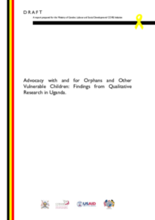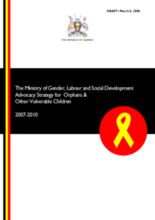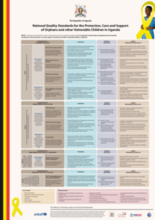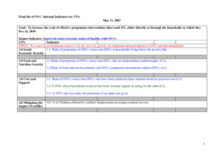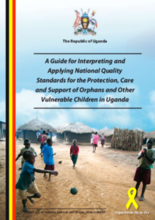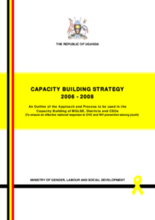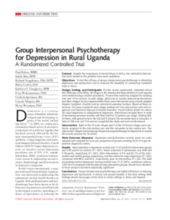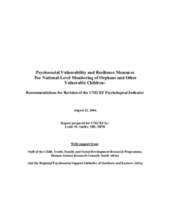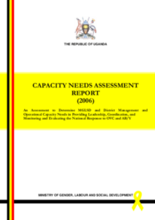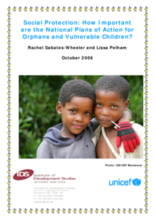This country page features an interactive, icon-based data dashboard providing a national-level overview of the status of children’s care and care reform efforts (a “Country Care Snapshot”), along with a list of resources and organizations in the country.
demographic_data
childrens_living_arrangement
children_living_without_bio
social_work_force
key_stakeholders
Key Stakeholders
Add New DataOther Relevant Reforms
Add New Datadrivers_of_institutionalisation
Drivers of Institutionaliziation
Add New Datakey_research_and_information
Key Data Sources
Add New DataThe Children Act (Uganda)
Country Care Review: Uganda
Prevalence and number of children living in institutional care: global, regional, and country estimates
The National Integrated Early Childhood Development Policy Action Plan (2016-2021) of Uganda
Catholic Care for Children in Uganda: A Family for Every Child - Findings from a Midterm Evaluation
Acknowledgements
Data for this country care snapshot was contributed by a consultant with the Data for Impact (D4I) Project at Palladium Group LLC.
Displaying 381 - 390 of 418
This study identifies key issues that need to be addressed in order to raise the profile of OVC and the Ministry of Gender, Labour and Social Development in Uganda.
An advocacy strategy to increase support for orphans and OVC in Uganda.
A poster depicting the National Quality Standards for the Protection, Care and Support of Orphans and OVC in Uganda.
A list of OVC national indicators used by the CORE Initiative for the prevention of OVC and HIV among youth in Uganda.
The purpose of the quality standards tools, namely the framework of national standards and the OVC quality standards guide, is to provide a structure and methodology for the development and application of relevant standards for the comprehensive, integrated protection, care and support of OVC at all levels in Uganda.
This document sets out the strategy to build and strengthen capacity to provide leadership, coordination and operational oversight at the central, regional, and district levels under the CORE Initiatives Uganda to prevent OVC and HIV among youth.
Studies the efficacy of Group Interpersonal Therapy for severe depression in HIV-affected communities.
This document discusses the work contributing to the area of psychosocial measurement with regard to HIV/AIDS and provides samples of surveys that can be used in measurement.
An Assessment to Determine MGLSD and District Management and Operational Capacity Needs in Providing Leadership, Coordination, and Monitoring and Evaluating the National Response to OVC and AB/Y
This briefing paper emerges from a review of 14 national plans of action (NPA), or in the absence of a NPA, outputs from the rapid assessment analysis and action planning (RAAAP) work for orphans and children made vulnerable by HIV/AIDS. The purpose is to analyse the way that issues of social protection are incorporated into these plans and to highlight areas within the plans where social protection activity may be needed to achieve stated outcomes. Annex 3 summarises, country by country, the social protection content of each NPA.

